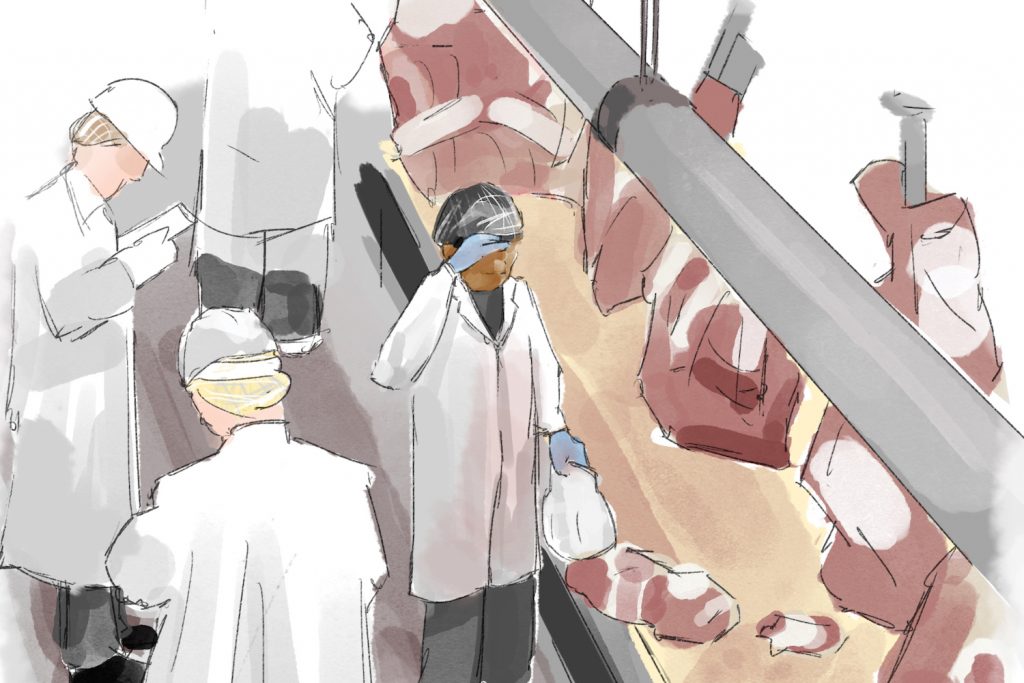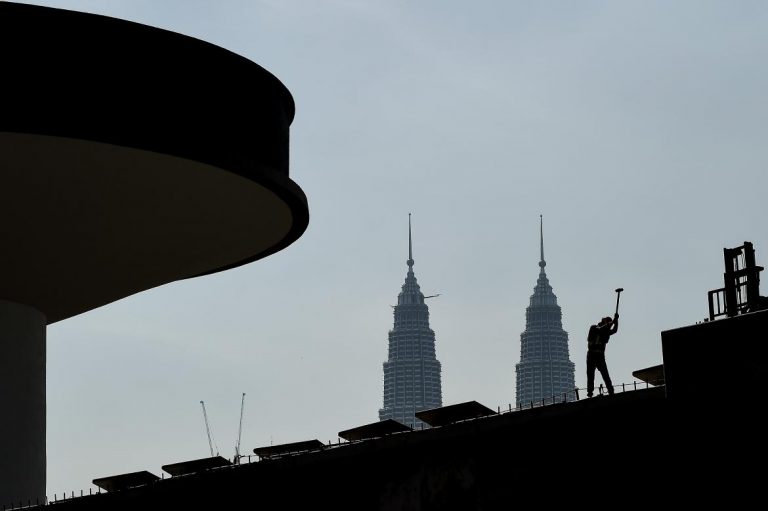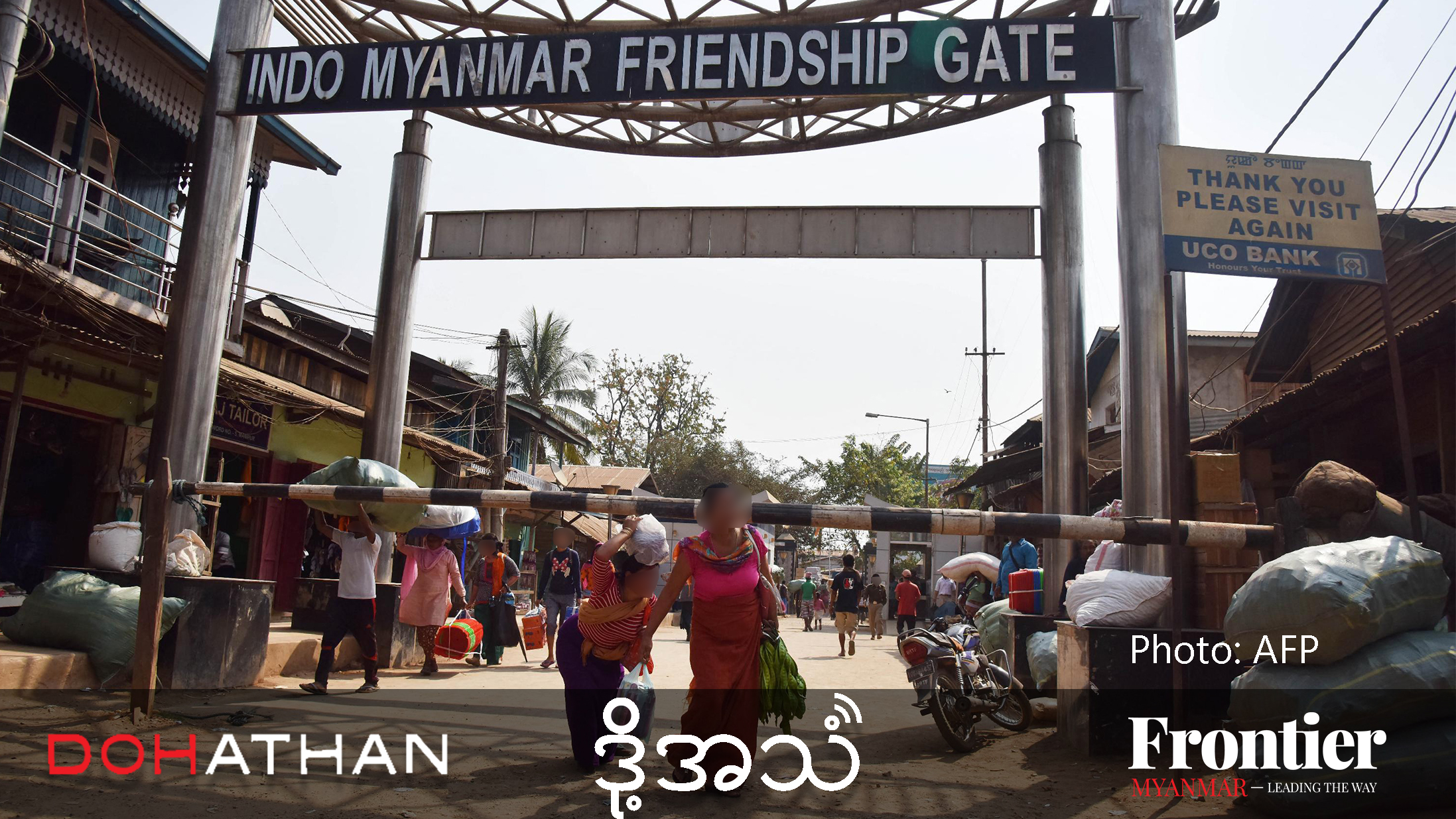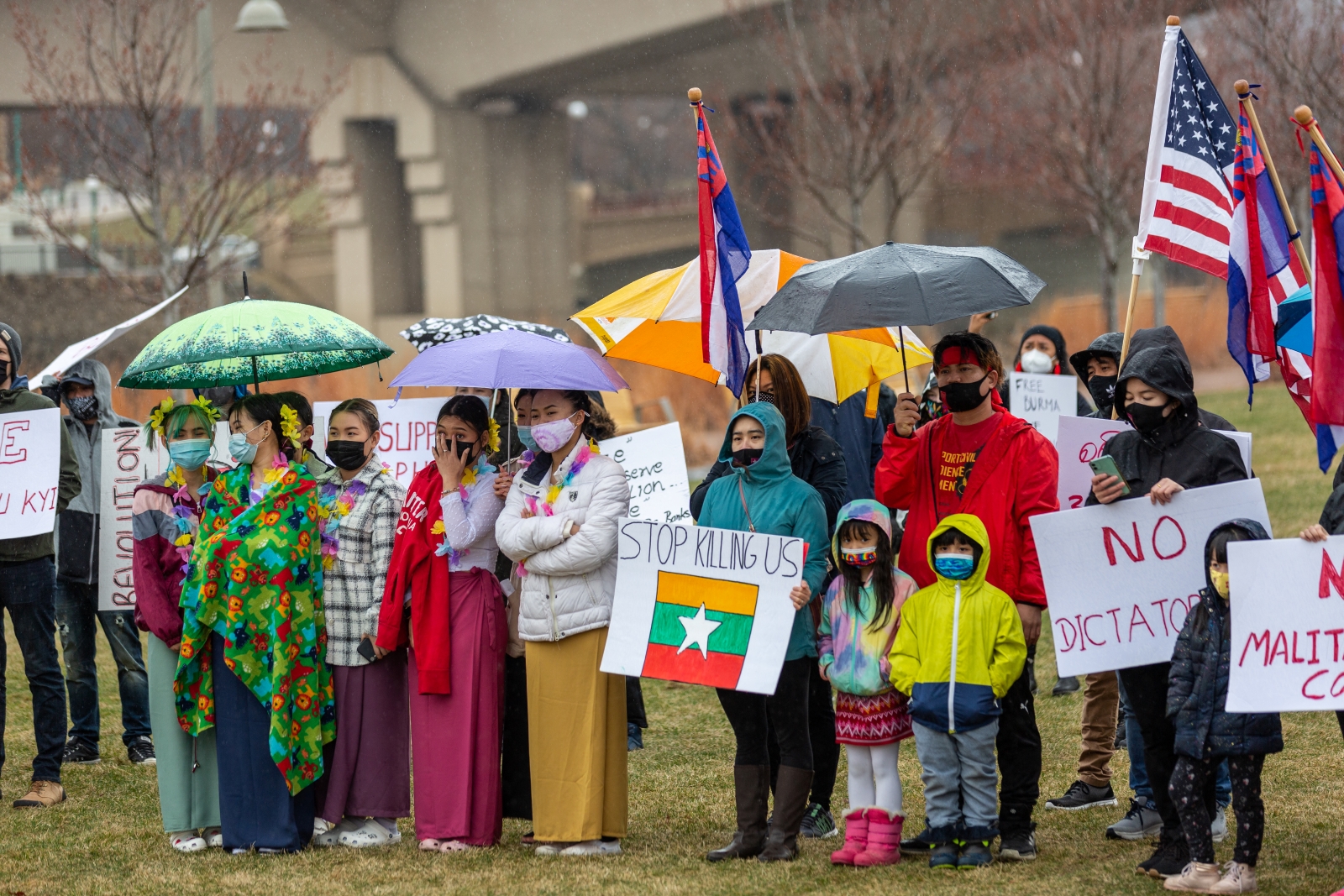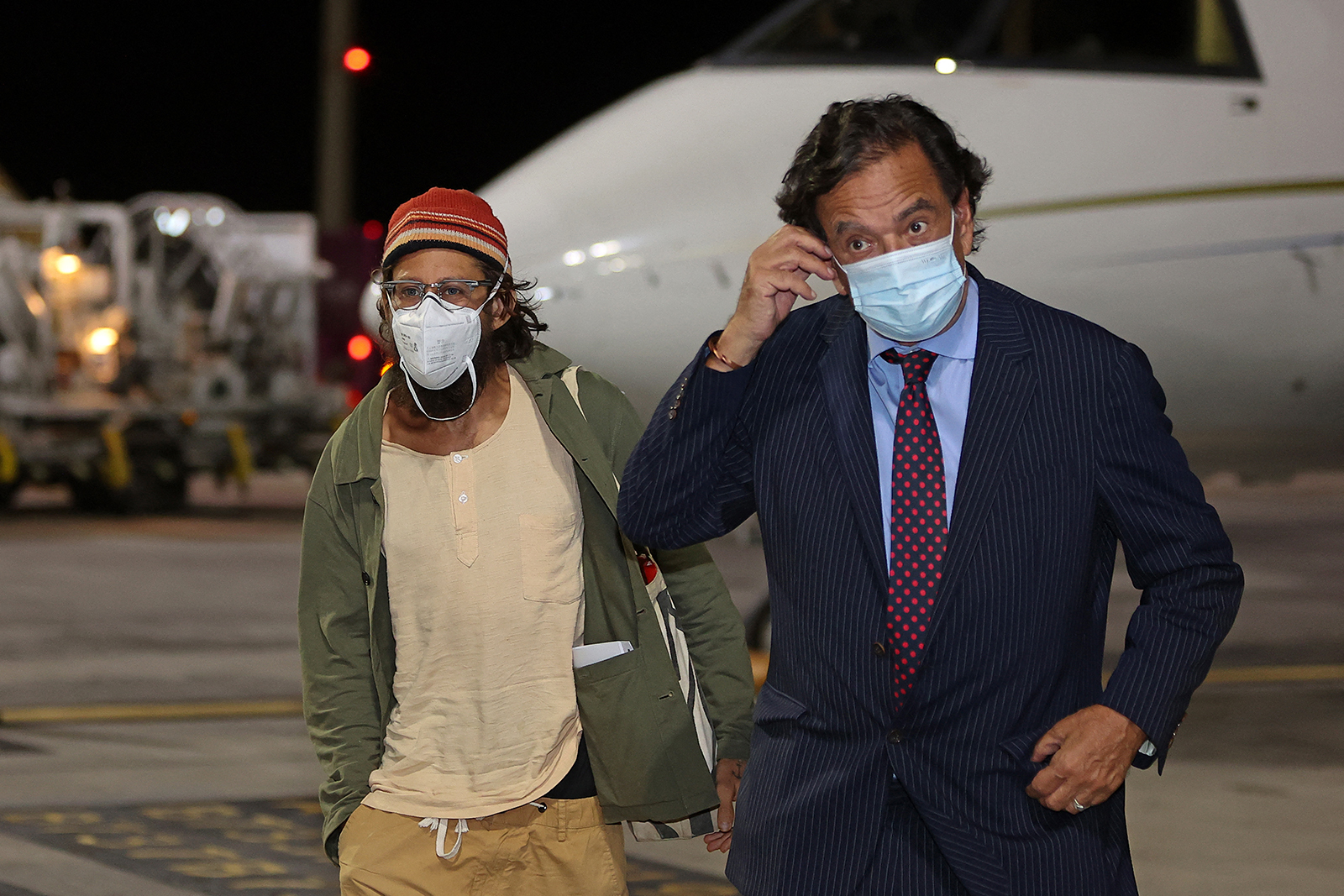An American immigration lawyer writes about the challenges of adjustment, bureaucracy and memory faced by asylum seekers and refugees from Myanmar in Battle Creek, Michigan.
By MAIA JUSTINE STORM | FRONTIER
Wherever groups of refugees settle in the United States, they create their own story with their own culture, ambitions and history. As an immigration lawyer who began working with refugees from Myanmar in Battle Creek, Michigan, in the early 2000s, I have become intimately familiar with their lives. Over the years I have come to appreciate the burdens they carry, sometimes unknowingly, into their American lives. To get here, they did what they had to do.
The first group to arrive in Battle Creek were Chin Baptists seeking asylum. They’d come by way of Guam, an island in the Western Pacific, in the early 1990s. Because Guam is a US territory they were able to file asylum claims based on religious persecution – Christians terrorised by a Buddhist military. I helped them apply for the green government cards that would grant them legal permanent residency and then, later, citizenship. But many couldn’t remember historical details for their asylum applications, which ask about arrest histories anywhere in the world, and it was important their information was consistent. “You only have one immigration file,” I warned. “Everything about you is in there.”
No one had written their own personal statements, a necessary part of every asylum application. They rummaged through mothball-scented boxes, pulling out wrinkled pages of arrest records, lists of detention centres and beatings, and accounts of escapes. Reading it was painful; some were obviously still traumatised, others seemed disconnected. Some histories were true and some, I suspected, were not.
After the asylum seekers came a much larger group of people who’d been granted refugee status by the United Nations refugee agency, UNHCR. After fleeing Myanmar, some had travelled through Thailand to Malaysia. In Kuala Lumpur they lived in crowded apartments, working on building sites or in Chinese restaurants. NGOs helped them register as refugees with the UN and then they waited to be resettled in a third country. They were arrested for immigration violations and paid bribes or were detained for months. Detainees also paid bail and bribes to leave. When accepted for resettlement, they boarded long flights paid for with borrowed money to go even farther from home. Imagine the sense of culture shock on arrival in New York or Los Angeles.
New arrivals are entitled to a few months’ worth of food vouchers and medical insurance but are expected to start working soon and become independent. Myanmar community leaders, usually church elders, helped them apply for jobs. Most found work, even if part time, in nearby factories, but newer arrivals spoke and read less English than their predecessors, and factories stopped hiring them.
One Chin pastor found a job opportunity at a JBS meatpacking plant about 45 minutes’ drive from town. Brazil-based JBS is the world’s largest meat processor. It offered a $300 bonus to any worker that recruited a friend who stuck around for six months. One enterprising refugee, who I’ll call Elvis, was hired as a translator. He started recruiting families from his village in Hakha Township who had resettled in neighbouring Indiana, letting them stay in his basement until they’d found apartments in the Battle Creek area.
The processing line in the JBS plant slowly wore people down. Mandatory overtime meant a long, six-day work week, particularly draining given the commute. Church, buying groceries and recreation were all packed into Sundays, and when I visited apartments to see clients on their one day off a week, I saw many single, young Burmese men doing laundry and other chores, and getting drunk.
When filling out immigration forms, I asked clients about working at JBS. Everyone had a work-related injury: sore shoulders, cramped and swollen hands. There were exercises that workers were expected to perform at the start of each shift, and Elvis helped interpret the instructions. The training was apparently not long or detailed enough. One woman described having to hold a knife in an awkward position for an entire shift; another described what working in freezing temperatures was doing to her joints. One man’s hands were so swollen he was unable to pick up a paper clip. He said a company doctor told him he must have hurt himself at home.
The Chin pastor who’d found the jobs told me he felt great guilt at having referred his congregation to the packing plant.
Plant workers voted to unionise. Most of the Myanmar workers had no idea what a union was or what it could do for them, but conditions improved slightly. The processing line slowed, and the company hired a Burmese-speaking chaplain.
Then an auto parts factory that was closer to Battle Creek than JBS began rehiring Myanmar refugees. They abandoned the meatpacking plant and were replaced by a new wave of refugees from the Democratic Republic of Congo. These are jobs Americans largely won’t perform, particularly now that meatpacking plants in the United States – staffed mostly by immigrants and refugees – have become some of the most vulnerable places for the spread of COVID-19. At least one DRC refugee at JBS has died from COVID-19 and many others were infected.
There was another alternative to JBS. I call it “the great sushi scam”. At large grocery store chains all throughout America, Myanmar, Chinese and Indian refugees and immigrants roll take-away cartons of sushi near the deli counter. My clients that held these jobs were paid in cash, never by cheque, and they never received a tax statement. Green card and citizenship applicants need proof of their work histories for the preceding five years. Some don’t know the difference between legitimate and off-the-books pay. Those who do sometimes claimed they were unpaid trainees.
At first I didn’t understand – they were not undocumented and could work legitimately. Later I understood the lure of not paying taxes. Steady, legitimate incomes meant reductions in government benefits. Claiming more children meant a large tax refund at the end of the year, and I saw some claim more than they had. But I’ve seen these obfuscations come back to bite refugees, too. To petition to bring a relative to the US, immigrants must submit tax records and meet income requirements, and I’ve watched people be denied a reunion with their loved ones. I’ve seen their shock when government letters come accusing them of fraud and demanding they pay back benefits for which they were ineligible.
Many, I’m sure, did not understand. Many, I know, did. A Myanmar woman who had been in the US for years told me that maneuvering around arbitrary government rules was part of daily life in Myanmar, and that people don’t change over night.
Other laws, too, needed explaining. Infants must be restrained in safety seats while driving, not sitting on parent’s laps, or parents could be charged with endangering the lives of their children.
But the two offences that took the most energy to explain were drunk driving and domestic violence. Many were used to drinking on their farms but not used to driving home afterward. I repeatedly told young men with drunk driving convictions to drink at home or with friends and sleep over. Domestic violence is seldom discussed but the women willing to speak said it was common for men to physically abuse their wives – it often accompanied the drinking. I left any moralising to the Baptist ministers and focused on possible legal consequences. Not only could they be jailed, they could be stripped of their refugee status and sent back to Myanmar. This was a shock to many.
Some couples, though, do want to divorce. I handled the divorce of several refugee couples, amazed every time at their lack of acrimony. Many had married young in Malaysia, which helped prioritise their resettlement. In the US, some never lived together or cohabited until they could get divorced. Even if they’d done this without malicious intent, it could haunt them. One woman feared immigration might find out about her first marriage of convenience. She had planned to omit it from her citizenship application, and had probably not included it on her green card application, either.
But times have changed. The Trump administration has drastically reduced the number of refugees and asylum seekers the US is willing to accept. Applicants who’ve passed citizenship exams are being turned away by officials who say their documents are still being scrutinised. Sometimes they receive letters voicing concerns about identity and biographic information. They are asked to come in for an interview – with their spouses if they’re married – and to bring the relevant documents.
The interviews consist of 50 questions, many trying to determine if refugees have used multiple names. They ask if they or their spouses have ever used another person’s ID or if they’ve used names other than those they registered with the UNHCR.
The prevalence of name changing took me years to understand. While helping a Chin refugee with his divorce, I asked his name, and he readily told me the name he was using had been invented in Malaysia. He was Bamar, not Chin, he said, but Chin were more likely to be granted refugee status by the UNHCR, so he’d adopted a Chin name. I had other Bamar clients I thought were Chin too, he said. I learned that the use of original names in email addresses is a dead giveaway. The emotional attention to ancestral names is strong, and many sought to change their names back to the original. “Why did you not mention this name before?” I heard a frustrated immigration officer once ask during an interview.
Some clients blamed discrepancies on UNHCR interpreters. Some say UNHCR staffers even suggest they buy fake IDs.
Identity documents in general are suspect. Original birth certificates and household registration forms, when they exist, often exist on long, fragile sheets of paper that seem to disintegrate in the hand. In lieu of a birth certificate, I often submit a Myanmar household registration document, which lists everyone in a household by name, date of birth, and relationship. The originals are also disintegrating.
But some clients present sturdy sheets of new paper and translations with the same notarisation from a man in Yangon. I often wondered how these documents were secured so quickly by some, who would presumably need help from relatives in Myanmar to get them. I don’t speak Burmese or any ethnic languages but have become attuned to listening to clients and translators, and have picked up some key words. In this way, I learned that a Battle Creek woman was supplying them with fake documents. This left me disillusioned. If I knew a document was fake, I would not submit it.
Generally, the community continues to grow and thrive. People are moving out of apartments and into their own homes, with their own vegetable gardens. Children are graduating from high school and many are going to university, forsaking jobs in slaughterhouses and sushi counters. They have their parents and grandparents to thank. Two Myanmar restaurants have come and gone, but a third, Shwe Mandalay, opened two years ago and looks like it’s here to stay.
Since the US began restricting visas for Myanmar nationals in January, refugees have no longer been able to bring relatives over in cases of emergency, but before the ban I’d helped bring relatives on emergency visitor visas, sometimes for funerals. More happily, I helped bring a grandmother who helps care for a granddaughter with a severe disability. The hospital would not release the child, who will need full-time care all her life, until another caregiver apart from her parents was living at home. I barely recognised the generally outgoing, assertive mother who came seeking my help because of her desolate appearance. The couple worked full-time at an auto-parts factory and had just bought a home. The birth of a child with a disability had been a shock.
“We never saw babies like this back home,” she told me. “I never knew there were babies like this.”
Had the child been born in her small Chin village it would likely not have survived the birth.
We quickly filed paperwork – applications, hospital records and doctors’ letters – to bring the grandmother over. Once she arrived, we filed paperwork to have her stay. Her daughter, a US citizen, could petition for her entry in this crisis.
The mother learned to care for her daughter, and her spirits gradually brightened.
“How is grandma doing?” I asked recently. She let out a hearty laugh.
“Oh, I hear her talking on the phone to her sister in Myanmar and telling her, ‘I’m in prison here! I can’t even go out!’” she said.
Of course, grandma would never abandon her daughter or granddaughter, even though I’m sure she never realised she’d be staying permanently. She’s adjusting.
And the little girl, now in her second year? Her name is Blessing, and she is thriving.


